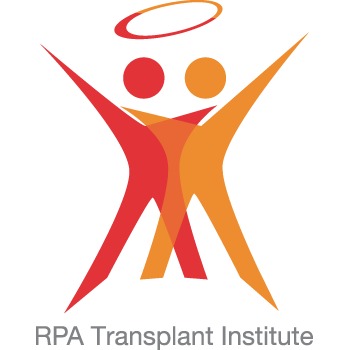Royal Prince Alfred Hospital (RPA) has long been Australia’s pioneers in organ transplant research and surgery having saved thousands of lives from across NSW. RPA Transplant Services has given the gift of life to more than 1940 people in need of liver transplants at either RPA or The Children’s Hospital at Westmead (formerly Camperdown) and performed more than 3000 kidney transplants giving Australian’s freedom from dialysis and a second chance at life.
Kidney and Liver Transplantation at RPA
Organ transplantation is one of the many miracles of modern medicine. However, it must have seemed a long way off when the first deceased donor kidney transplant was performed at Royal Prince Alfred Hospital in the transplant pioneering era of 1967. There were less than 10 kidney dialysis machines in Sydney, the same as the number of patients on the kidney transplant waiting list. By July 2019, more than 3000 kidneys had been transplanted at RPA. The waiting list for kidney transplantation has grown to more than 400, a testament to the success and safety of the procedure.
The story is similar for liver transplantation. For patients with liver failure, there were and are still no liver dialysis machines – simply, they need another liver to stay alive. In 1986, the commitment RPA to organ transplantation was rewarded with the establishment of the Australian National Liver Transplantation Unit (ANLTU). Since 1986, more than 1000 liver transplants have been performed at either RPA or The Children’s Hospital, now at Westmead. It is by far the largest liver transplantation program in Australia. Indications for transplantation have grown and getting onto the waiting list is not a major problem. Staying alive on that waiting list however, is a problem, with upwards of 20 percent not making it to transplantation in time because of a shortfall of donor livers.
RPA Transplant Institute and Research
Many lives have been saved and others changed for the better because of transplantation at RPA. From the outset in 1967, research has played an integral part in the success of the clinical transplant program at RPA. Committed and good ‘researchers’ identify problems and solve them. By necessity and perhaps more than in any other field of medicine, transplant related research is right at the interface between the laboratory bench and clinical practice. Exceptional transplant results and research go hand in hand. One does not happen without the other. The RPA Transplant Institute was established in 2006 to formally recognize the interdependence of best clinical practice and clinically based research at all levels.
The scope of our research interests at RPA is as varied and as broad as our multi-disciplinary care team. Our central research theme is the provision of greater access to better and safer transplantation, and revolves around the shortcomings of the following two truths about current clinical transplant practice:
More people can benefit from transplantation than we have kidneys or livers to transplant.
The success of transplantation has been made possible by the combination of powerful drugs to control transplant rejection and our sophisticated ability to diagnose and treat the problems caused by those drugs.
We aim to advance the knowledge of transplant healthcare professionals and create treatments that will contribute to prolonged, improved health for all transplant patients.
Through the education of patients, physicians and the wider community we will create a greater understanding of transplantation and the significance of transplantation as a critical means of prolonging life.
Our Research in Progress
• Extending the criteria for acceptance of deceased donor kidneys and livers
• Evaluating factors that influence community acceptance of organ donation
• Reducing the physical burden of kidney or liver organ donation from living donors
• Minimizing or eliminating the need for immunosuppressive drugs to control rejection by inducing transplant tolerance specific to the donor organ
• Extending the life of the kidney or liver transplant by better understanding the molecular basis of the rejection response
• Establishing safer means to transplant patients with organ failure secondary to viral infections
• Identifying treatment protocols to reduce heart disease, diabetes and tumor formation after transplantation
